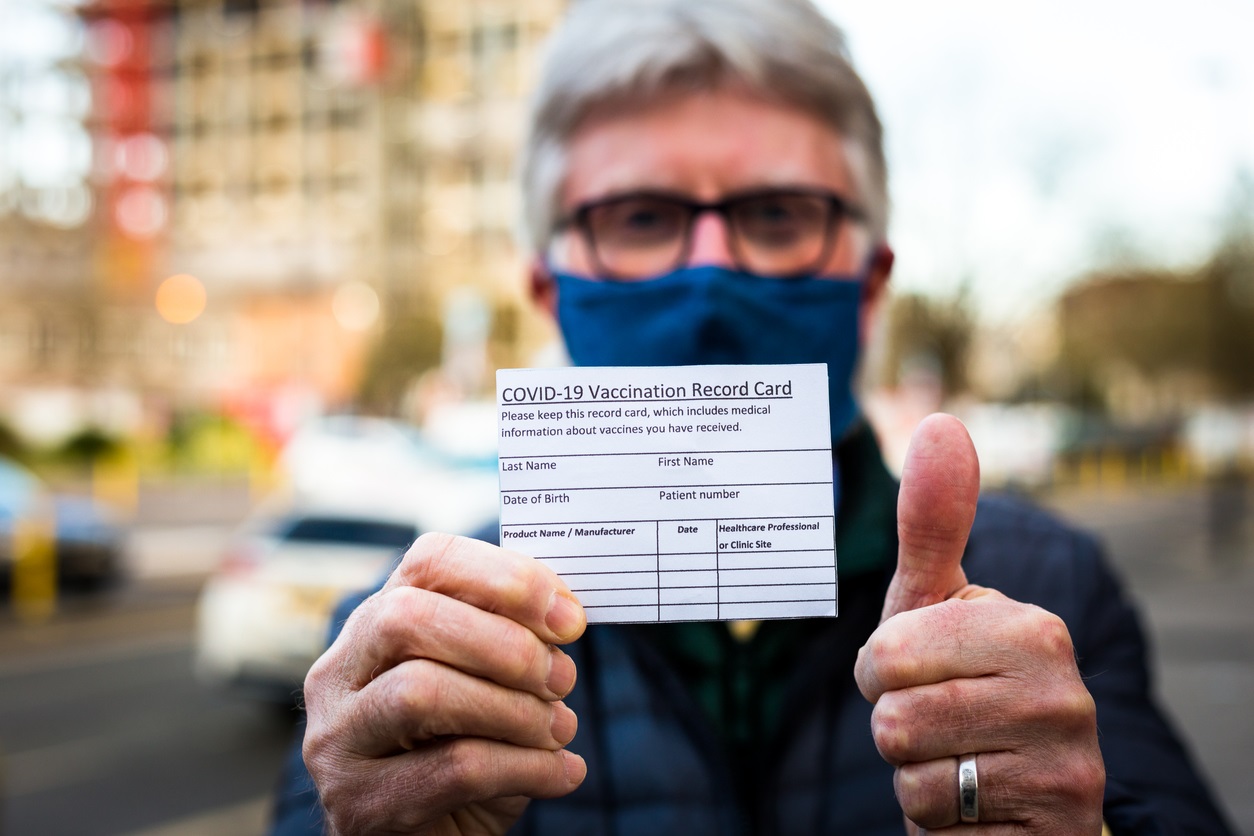Measles, mumps, and polio are infectious diseases that once caused public health crises in the U.S. With the development of vaccines, herd immunity, or “community immunity,” as it is commonly referred to, helped to nearly eradicate these diseases. Today, as the COVID-19 pandemic continues, questions about what herd immunity is and how it can be achieved are at the forefront of many peoples’ minds.
The World Health Organization (WHO) defines herd immunity as “the indirect protection from an infectious disease that happens when a population is immune either through vaccination or immunity developed through previous infection.” One of the biggest benefits of achieving herd immunity is protecting those who are immunocompromised or who cannot receive a vaccine for a preventable disease. Children, as well as adults of any age who have been diagnosed with conditions such as dementia or other neurological conditions, Down Syndrome, and substance abuse disorders, are considered to be immunocompromised and at an increased risk of becoming seriously ill from COVID-19.
COVID-19 Pandemic – The Importance of Community Immunizations
Herd immunity is the best defense to protect our loved ones, especially those who may be more vulnerable to aggressive illnesses and viruses such as COVID-19. There are two ways herd immunity from COVID-19, or SARS-CoV-2, can be achieved: through natural infection or protective vaccines.
Herd immunity achieved through natural infection requires an estimated 70 percent of the U.S. population to contract COVID-19 and recover from the virus. Individuals infected would develop natural antibodies against COVID-19, protecting them from contracting the virus again and spreading it to others. However, community immunity achieved by way of natural infection can have serious consequences. For example, those who contract the virus naturally are at risk of death or long-term health implications, which could be devastating for the population as a whole. There is also the question of reinfection, or how long the natural antibodies will protect the individual from contracting the disease again or spreading it to others.
The second way to achieve herd immunity is through vaccination. Vaccines provide individuals with protective antibodies without causing illness or resulting complications. Herd immunity has been successfully achieved through vaccinations for contagious diseases such as smallpox, polio, diphtheria, and rubella. However, vaccines for COVID-19 are still relatively new, and it is not clear how long individual vaccinations can provide protection against the virus.
For vaccines to be effective, all populations and geographical demographics worldwide must reach herd immunity to prevent the virus from spreading through international travelers. Otherwise, as infection rates continue to rise, so does the increased risk of the virus mutating. This can create new variants that may not be protected by the existing vaccines. In addition, skepticism about the benefits or perceived risks of vaccines can hinder the development of herd immunity.
Herd Immunity and Coronavirus: Can It Be Achieved?
Advocating for Our Loved Ones – Protecting the Immunocompromised Through Herd Immunity
Vaccine rollouts across the U.S. have made multiple vaccines available to all eligible adults and children over the age of 12. At the time of writing, 57 percent of the total U.S. population have received at least one dose of the COVID-19 vaccine, and 49 percent are fully vaccinated according to the CDC. However, until the vaccination rate reaches 70 percent, herd immunity cannot be achieved. It is imperative that those who are eligible receive their vaccination to protect those who cannot.

Many people with brain disorders such as Down Syndrome or Alzheimer’s Disease live in group residences, where high traffic and shared living space puts them at an elevated risk of contracting infectious diseases. People who are immunocompromised must be vigilant to protect their health; that responsibility extends to family members and caregivers as well.
Below is a list of resources to help protect you, your loved ones, and members of our community who are immunocompromised from the devastating effects of the COVID-19 pandemic.
- Visit Vaccines.gov to find vaccination providers near you.
- Text your ZIP code to 438829 or call 1-800-232-0233 to find vaccine locations near you in the United States.
- Check your local pharmacy’s website to see if vaccination appointments are available. Find out which pharmacies are participating in the Federal Retail Pharmacy Program.
- Contact your state health department to find additional vaccination locations in the area.
To learn more about our mission to find a cure for brain disorders worldwide, please visit our website at The United Brain Association. If you’d like to receive updates, news, scheduled events, or more information about our ongoing donor-funded research projects, sign up for our email newsletter by clicking here. Together we can find a cure for brain disorders around the world.
You Are Not Alone
For you or a loved one to be diagnosed with a brain or mental health-related illness or disorder is overwhelming, and leads to a quest for support and answers to important questions. UBA has built a safe, caring and compassionate community for you to share your journey, connect with others in similar situations, learn about breakthroughs, and to simply find comfort.

Make a Donation, Make a Difference
We have a close relationship with researchers working on an array of brain and mental health-related issues and disorders. We keep abreast with cutting-edge research projects and fund those with the greatest insight and promise. Please donate generously today; help make a difference for your loved ones, now and in their future.
The United Brain Association – No Mind Left Behind




